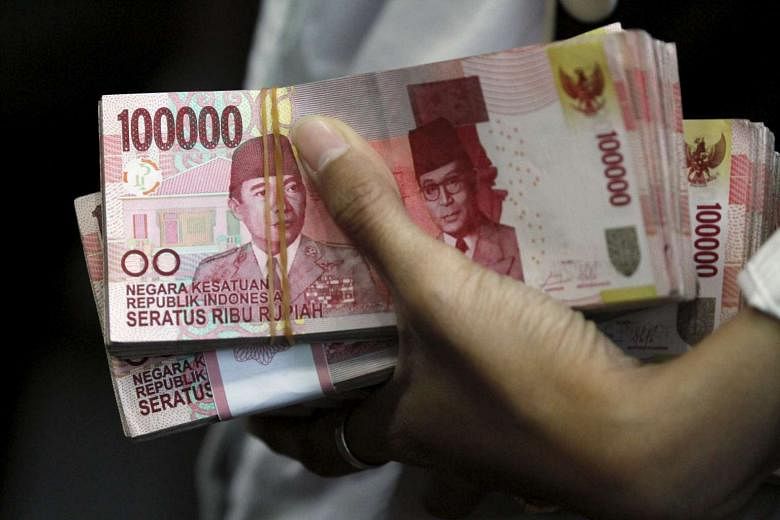JAKARTA (BLOOMBERG, REUTERS) - Indonesia's rupiah and stocks extended drops on Thusrday (Jan 14) after at least six people were killed in explosions and gunfire in central Jakarta.
The rupiah, which started Thursday weaker on expectations that Indonesia's central bank would cut its policy interest rate later in the day, extended losses to 1 per cent and a one-week low of 13,960 per US dollar on news of the attacks as foreign banks dumped the currency.
The rupiah pared losses, tracking recovery in other Asian currencies on sharp gains in China's stocks. It briefly turned firmer, but failed to maintain the rebound and fell 0.6 per cent to 13,905.
The Jakarta Composite Index of shares closed down 0.5 per cent at 4,513.181 after declining 1.8 per cent earlier.
Hours after the attack, Bank Indonesia cut its benchmark policy rate by 25 basis points to 7.25 per cent. It lowered interest rates for the first time in nearly a year, to try to lift an economy that's been hurt by falling commodity prices and is forecast to have grown at the slowest pace since the global financial crisis. The last time Indonesia's key rate was changed was in February, when it was reduced 25 basis points to 7.50 per cent.
In 2015, the rupiah was Asia's second-worst currency, falling by 10 per cent against the US dollar and touching 17-year lows. But in the fourth quarter, it was the best performer with a 6.2 per cent jump. It has not been as badly hit as many currencies by the early 2016 emerging market rout.
The explosions, which happened outside a shopping mall, cloud the outlook for an economy President Joko Widodo cut short a visit to West Java and is holding a limited cabinet meeting in Jakarta.
"The initial response was typical for such tragic news, and that is the rupiah weakened sharply," said Sue Trinh, head of Asian foreign-exchange strategy at Royal Bank of Canada in Hong Kong. "But the market looks to be paring back on that."
Indonesia has been battling violent Islamist extremists since at least 2000, but the last major attack was in 2009 when twin suicide bombings killed seven people at two Jakarta luxury hotels. Police and security analysts have warned that Indonesians traveling to join the Islamic State in Iraq and Syria posed a threat to Indonesia.
"We still don't have much information, which makes it hard to make any prediction," said Masakatsu Fukaya, a trader on the Asia and emerging-market team at Mizuho Bank Ltd. in Tokyo. "But if this is not a long-lasting incident, the impact on the economy may be limited as unlike Thailand, Indonesia doesn't depend much on tourism revenue."

